The following publications by Dr Greg Madison include books, book chapters, articles and audio on Focusing-Oriented Psychotherapy, Existential Therapy, Existential Migration, the Psychology of Globalization and related subjects.
Books
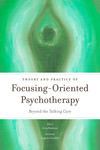
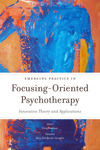
Two texts on Focusing-Oriented Psychotherapy, Greg Madison (Ed.) Jessica Kingsley Publications, London/New York.
Theory and Practice of Focusing-Oriented Psychotherapy. Beyond the Talking Cure
Emerging Practice in Focusing-Oriented Psychotherapy. Innovative Theory and Applications
These comprehensive introductions to Focusing-Oriented Psychotherapy lay out the background and fundamentals of the approach covering theory and practice. The books are essential reading for all practicing therapists and counselors, as well as trainee therapists, particularly those who want to explore the potential of experiential dimensions in their therapy and coaching practice. In addition, Emerging Practice in Focusing-Oriented Psychotherapy brings together some of the world’s most influential contemporary psychotherapists in the field to look at the future of Focusing-oriented approaches. Topics covered include trauma, neuroscience, mindfulness, short-term therapy, couples and group approaches.
Both texts are now available from Amazon and other booksellers internationally.
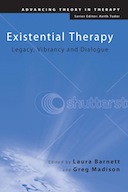
Existential Therapy: Legacy, Vibrancy and Dialogue
by Barnett, L. and Madison, G. (eds.) (2011, Routledge). This is a major anniversary book on Existential Therapy with internationally renowned contributors including: Eugene Gendlin, Betty Canon, Ernesto Spinelli, Emmy van Deurzen, Alfried Längle, Maurice Freidman, Donna Orange and many other prominent existential therapists from Europe and North America…
“This volume, whose list of contributors reads like a ‘Who’s Who’ in existential therapy, will leave the reader with no doubts about the influence and vitality of the existential tradition in a plurality of contemporary psychotherapeutic approaches. The book is a marvelous feast for anyone with a taste for the existential.” –Robert D. Stolorow, Ph.D., author, World, Affectivity, Trauma: Heidegger and Post-Cartesian Psychoanalysis (Routledge, 2011)
Available from Amazon

The End of Belonging: Untold Stories of Leaving Home and the Psychology of Globalization
by Greg A Madison, PhD .(2009)
Do we really know what we’re doing when we leave our home to live in a foreign culture? Why do some of us keep leaving, travelling from place to place, never settling, never really feeling at home? In today’s globalised world it is increasingly expected that many of us will go where the job takes us, but at what cost? This book tells the stories of ‘existential migrants’, people who left home in order to discover themselves. It also warns us that there may be an unexpected psychological effect from thinking we can just live everywhere.
Kindle and paperback version available
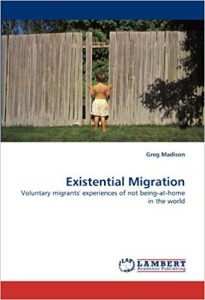
Existential Migration: Voluntary migrants’ experiences of not being-at-home in the world
by Greg A Madison, PhD .(2010)
Unlike economic migration, simple wanderlust, exile, or variations of forced migration, ‘existential migration’ is a chosen attempt to express or address fundamental issues of existence by leaving one’s homeland and becoming a foreigner. As well as the new concept of existential migration, the book proposes a novel definition of home as a specific experience of self-world interaction. This is in contrast to the usual assumptive definitions of home as place. The book also questions accepted definitions of home, the foreign, belonging, and homelessness, revealing existential perspectives on our contemporary world.
Available from Amazon
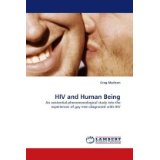
HIV and Human Being by Greg A Madison, PhD.(2010)
Few studies of psychological adaptation to an HIV+ diagnosis have inquired into its existential dimension. Existentialism contributes valuable insights into human experience without pathologising that experience. In this research study, the life experiences of six HIV+ gay men were explored using semi-structured in-depth interviews incorporating Focusing, a form of intensive self-reflection. The transcripts of these sessions were analysed phenomenologically and the results compared to previous studies as well as to the philosophy of Martin Heidegger. The question is posed as to whether the existential insights of HIV+ gay men can teach us all something about the structure of human living.
Available from Amazon
Book Chapters
- (2004) Madison, G. ‘Hospital Philosophy: The Frame in Hospital Therapy’ in The Therapeutic Frame in Clinical Contexts, M. Luca, Ed. London: Brunner-Routledge
- (2004) ‘Focusing-Oriented Supervision’ in Freedom to Practice K. Tudor and M. Worrall, Eds. London: PCCS Books
- (2005) ‘Bereavement and Loss’ in Existential Perspectives on Human Issues, A Handbook for Therapeutic Practice, E. van Deurzen and C. Arnold-Baker, Eds. London: Palgrave-MacMillan
- (2009) Madison, G.’ Evocative Supervision’. In Existential Perspectives on Supervision. Emmy van Deurzen & Sarah Young (Eds).
- (2011) Madison, G & Gendlin, ET. ‘Palpable Existentialism: An Interview with Eugene Gendlin.’ In Existential Therapy. Barnett & Madison (Eds.)
- (2012) Madison, G.’ Let your body be your coach‘. In Existential Perspectives on Coaching. Emmy van Deurzen & Monica Hanaway
- (2014) Madison, G. Exhilarating pessimism. Focusing-Oriented existential therapy. In Madison, G (Ed.) Theory and Practice of Focusing-Oriented Psychotherapy. Beyond the Talking Cure. London: Jessica Kingsley Publ. (pp.113-127).
- (2018) Madison, G. The Unfinished Self: Inclusivity in experiential-existential therapy. In Du Plock, Simon (Ed.) Case Studies in Existential Therapy. Translating Theory into Practice. London: PCCS Books. (pp.71-84).
- (2020) Madison, G. Hack therapy: A radical existential practice. In Bazzano, Manu (Ed.) Re-visioning Existential Therapy. Counter-traditional Perspectives. London: Routledge. (pp.137-147).
- (2021) Madison, G. & Spinelli, E. The Body as Phenomenologist: An Existential Challenge to Identity Practice. In Kypriotakis, N and Moore, J (Eds.) Senses of Focusing. Athens: Eurasia Books
- (2022) Madison, G. & Spinelli, E. What really matters? In Monica Hanaway (Eds) Existentialism in Pandemic Times. London: Routledge in press.
- (in press) Madison, G. Feeling my way. Sampling the Experiential-existential approach. In a collaborate book by international Existential Therapists. Title and publisher TBA. Yaqui Martinez Robles (Ed.)
Articles in Refereed Journals
- (1987) Swartz, Paul and Madison, Greg. Contributions to Psychohistory: Betwixt and Between. J. of Perceptual and Motor Skills, Vol. 65: 3-18
- (1987) Kuiken, Don and Madison, Greg. The Effects of Death Contemplation on Meaning and Purpose in Life, Omega. J of Death and Dying, Vol 18: 99-108
- (1999) Madison, Greg HIV and Human Being, Folio. J. of Focusing and Experiential Therapy, Vol 18: 78-9
(This summary is based upon an MA thesis, offering a Heideggerian analysis of what might be learned from the experience of HIV+ gay men. The full text is now available as a textbook, listed above) - (2000) Existential, not Pathological., J of Existential Analysis, Vol. 11.2: 124-138
- (2001) Focusing, Intersubjectivity, and ‘therapeutic intersubjectivity. Rev. of Existential Psychology and Psychiatry. Vol.XXVI, No1: 3-16
- (2001) Framing Death – Existential and Communicative Therapy. J. of Exist. Anal. Vol. 12: 85-101
- (2002) Illness… and its Human Values. J of Existential Analysis, Vol. 13.1: 10-30
- (2003) One of Us – Community Care Policy. J of Existential Analysis. 14.2: 320-33
- (2005) Habermas, Psychoanalysis and Emancipation. J. of Existential Analysis 16.2: 208-20
- (2006) Existential Migration. Existential Analysis 17.2: 238-60
- (2007) Unsettling Thought. Existential Analysis 18.2: 220-29
- (2010) Focusing on Existence: Five facets of an experiential-existential model. Person-Centred and Experiential Psychotherapies
Vol 9 (3): 189-204. - (2012) Addendum to the SEA Conference… Existential Analysis 23.1: 3-6
- (2014) Madison, G. What is the living body in existential therapy? International Journal of Psychotherapy (in press).
- (2014) Madison, G. The palpable in existential counselling psychology. Counselling Psychology Review. Vol.29, No.2: 25-33.
- (2022) Madison, G. Reluctant researchers: Therapists in search of a straightforward heartfelt method. AHP Self and Society Magazine.
Other Articles
- (2001) Madison, Greg. ‘Strain Spotting’ in The Health Service Journal. Issue Sept.6: 7-8
- (2001) ‘What is Being in Hospital?’ in Hermeneutic Circular, Issue January: 8-9
- (2001) ‘Becoming and Being a Doctor’ in Hermeneutic Circular, Issue May:7
- (2001) ‘General Hospital Therapy’ in Univ. Assoc. of Couns. and Psychoth. Newsletter. Issue 6, Spring: 13-6
- (2002) ‘Bereavement and Bereavement Counselling’ in Inside the Human Body, Part 161:9-12
- (2003) ‘Focusing for the Therapist’ in The Focusing Connection, November: 1-2
- (2003) ‘Post-Human Future, Post-Dasein Therapy’ in Hermeneutic Circular, July: 4-5
- (2003) ‘Focusing and Therapeutic Intersubjectivity’ in Staying in Focus, The Focusing Institute Newsletter, Vol.III,No.1 (Jan): 5-6
- (2008) ‘The Struggle for Authenticity in the Second Act’. Goodtherapy.org
- (2013) ‘The relational “revolutionary pause”: Focusing Therapy…’ in Staying in Focus, The Focusing Institute Newsletter (Jun).
- (2014) Madison, G. Palpable existentialism: A focusing-oriented therapy. Psychotherapy in Australia, Vol. 20 (2), Feb. (pp.26-32)
- (2014) Madison, G. Spirituality in Psychotherapy. BFA Newsletter, Issue 4. April: pg.4-5
Articles without Full References
- Psychotherapy support consultancy – a brief description of the innovative model of therapeutic support for patients, family, and staff developed by the author at a major London teaching hospital, based upon existential principles
- Analyst Resistance – is all resistance in psychotherapy really that of the analyst?
- Focusing as a way of being – focusing, as described by Eugene Gendlin, is not a technique but a way of being with others
Audio & Video
- The Living Process – a series of conversations available as Youtube videos and podcasts on all platforms
- Focusing and Existential Therapy
- Focusing Interview with Dr Greg Madison
- Relaxed Discussion about Existential and Experience with Dr Yaqui Andrés Martínez Robles, Mexico
- Youtube Channel with videos
- Creating a better relationship with yourself. Special guest Dr Greg Madison on the M.Kain Coaching Podcast